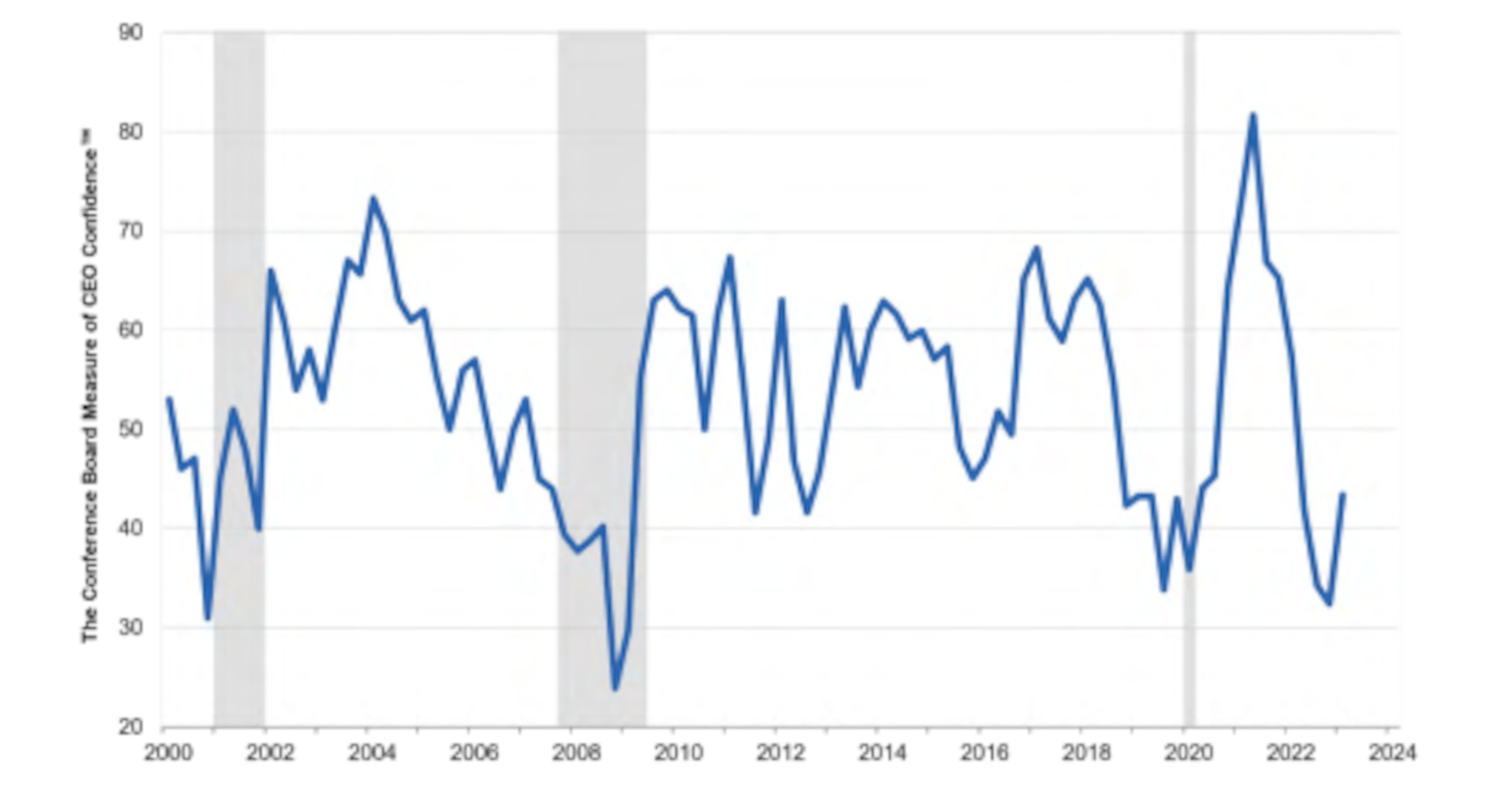Global Equity Markets Commentary
Markets in a Bind: Evaluating tail risks in a shifting world… Growth or rates?

The strength of global equities in January reflects a market looking well into the future. Investors appear to have moved ahead of the inflation and interest rate story and are now focused on the prospects for growth. The extent to which investors are right in so doing will dictate the path for equities in the coming months.
Headline inflation is certainly moderating. The US Consumer Price Index fell to 6.5% in December, and data are similarly cooling in the UK and Europe. This is partly the outcome of tighter monetary policy: liquidity is reducing, with US M2 money supply contracting rapidly, falling 0.7% in December. At the same time, supply chain issues have eased, and energy prices are significantly lower.
While Russian energy is no longer reaching Europe, it has been rerouted. At the same time, a warmer winter has coincided with European industries and consumers tightening their belts. European gas consumption is down 15% relative to a seasonal average, despite no meaningful loss of industrial output. Oil and gas prices are now down around a third and a half, respectively, from where they were one year ago.
However, with the latest US jobs data showing that unemployment is at 3.4%, its lowest in 53 years, core inflation may yet remain resilient. And while M2 money supply is contracting, it is estimated that there are still 3.7 trillion USD over their pre covid levels, supporting the economy with much liquidity. What’s more, there has been a clear shift from rising goods prices (which are now on a downward trend) to rising services prices, of which the greater part is wages. The picture is similar in Europe, where core inflation remains at 5.2%.
To some extent, this continues to be an overhang of the pandemic. Goods manufacturers have lapped the benefits of tighter supply and (in some cases) higher levels of discretionary income. Service companies, by contrast, continue to benefit from pent-up demand. Yet US labour force participation is still 2.6m below pre-covid levels, with the over 55s accounting for 37% of the working age population. This raises questions about the role labour will play in sustaining higher inflation longer-term: are wages structurally rising? What role will “smart robots” as opposed to plain automation play a role in the evaluation of labour participation equilibrium? How will companies adjust?
Alternatively, the job market’s ability to withstand higher interest rates may reflect a so-called “soft landing” of the global economy. A combination of lower energy costs, higher wages and softening inflation has seen the International Monetary Fund upgrade its global economic growth forecasts for 2023 from 2.7% to 2.9%. While this is still a reduction from 2022’s 3.4%, China’s swift reversal of its “zero-Covid” policy has rapidly boosted optimism in this regard. After months of contraction, January saw China’s composite Purchasing Manager Index move from 42.6 to 52.9.
As the engine of global growth, China’s decision will have far-reaching consequences. Despite early attempts to re-shore manufacturing, Europe in particular remains highly dependent on China: in 2021, China was the third largest partner for EU goods exports (10.2%) and its largest partner for EU goods imports (22.4%)1. While Europe may stand more to benefit from China’s reopening, the outlook in the US also shows some favourable traits versus expectations as they stood 3 months ago. Despite an inverted yield curve, US equity markets have gone from pricing in an 80% chance of a recession in October, to just a 10% chance2.
After the sharp multiple compressions of 2022, earnings results will be key to understanding how these macro contradictions will play out. Since June 2022, EPS expectations for the S&P 500 have been cut by 10%, around twice the historical average. Yet against this negative backdrop, and with around 70% of the market having reported, 47% of companies have beaten Wall Street estimates by over one standard deviation, in line with historical averages.
Equally, while EPS beats are not being rewarded, misses are also not being overly punished. Typically, the latter have been due to the asymmetrical impact of inflation on net revenues and costs with higher labour and costs, increased marketing spend, as well as unwinding inventories. With market consensus still at +1% for the year, this suggests that while a meaningful level of pessimism has already been baked into expectations the adjustment may not be complete. Substantial earnings disappointments later in the year, as well as consistently softer outlooks could paint a gloomier economic picture. CEO surveys (below) suggest that further downward adjustments may be required. Expectations may need to fall still further before central banks consider their monetary policy objective complete.
In a world where money once again has a cost, growth can no longer be funded with limitless debt. In turn, the threshold for the return on capital employed must rise. Ultimately, this development is healthy and may promote a survival of the fittest approach amongst companies. Markets also need to re-evaluate the potential tail risk of energy prices in 2023. With Chinese demand sure to rebound, the current delicate pricing balance will also be affected by the degree of slowdowns in Europe and the US. Geopolitics may also still play a role, as Russia’s invasion of Ukraine continues to unfold and marginal suppliers such as Saudi Arabia decide their course.
In this environment, where volatility will remain, we continue to favour a carefully constructed portfolio of high conviction positions. First, anchoring portfolios around low-volatility multi-factor strategies offers a possible bedrock of stability on which to build. Second, the current environment has created favourable opportunities for stock pickers in quality value and growth names, as well as income. Finally, we retain high conviction around long-term thematics built upon key pillars such as national security (e.g., food, energy, water, cyber security), climate resilience, innovation (e.g., AI) and sustainability.
Figure 1: US CEO Confidence Survey

Note: shaded areas indicate periods of recession. Source: CEO Confidence (conference-board.org) as of 9 February 2023.






